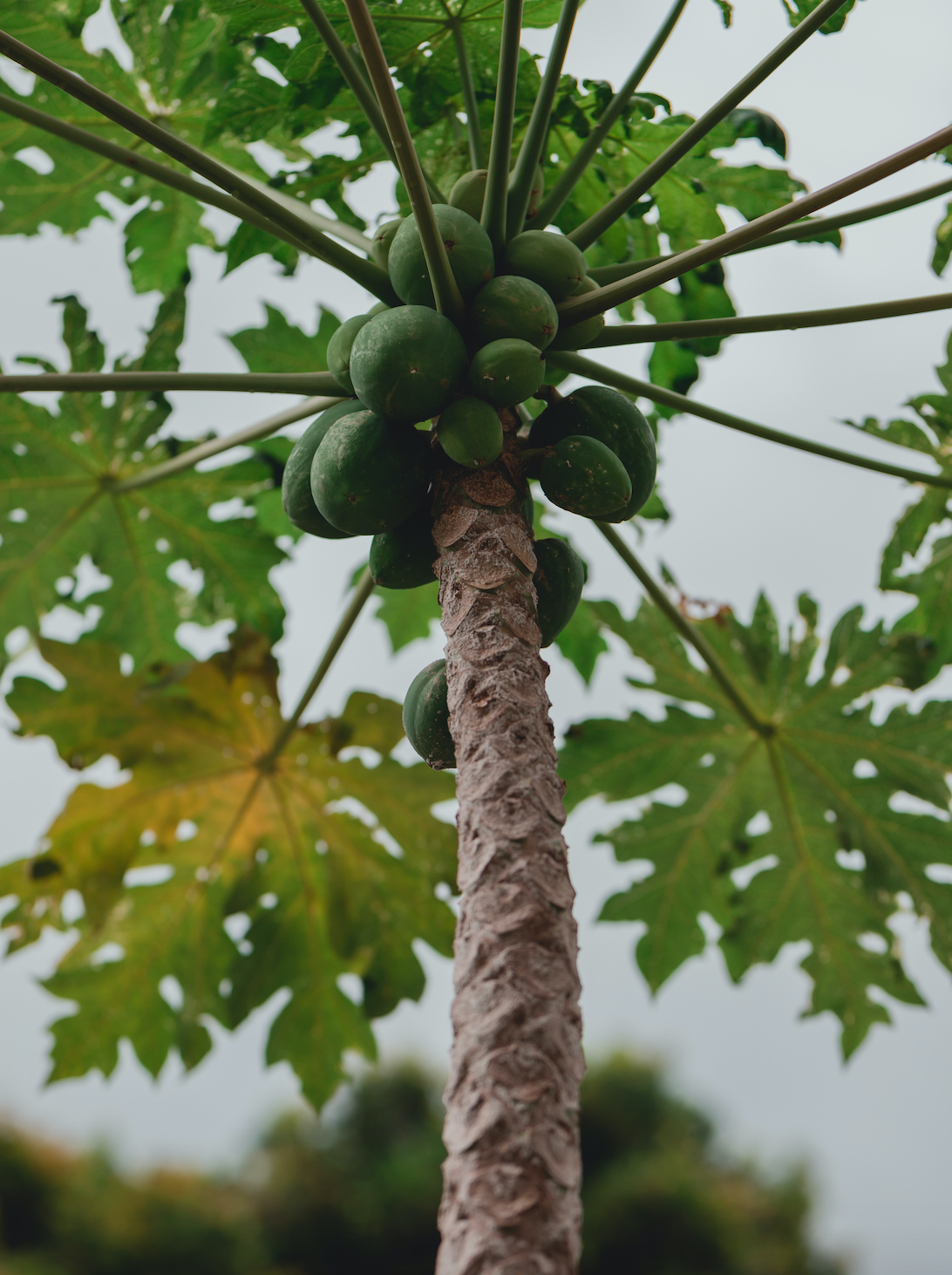
Papaya: nature’s own digestive hero
Although it tends to be most popular in summer fruit bowls, papaya was coined the “fruit of the angels” for a reason. For its generous levels of vitamin C to its powerful digestion-aiding capabilities, you might want to add papaya to your shopping list more often.
Papayas can be sourced throughout the year with their peak season being in summer and autumn. Actually a berry, it’s yellow-green skin encases juicy orange flesh with a creamy texture surrounding dark seeds, and makes for a refreshing choice for breakfast bowls and summer salads or simply eaten on its own.
Believed to be native to Southern Mexico and Central America, papaya or Carica papaya is now cultivated in many tropical countries including India, Brazil, Indonesia and Nigeria. The largest global exporter of papayas is Mexico, with the largest importers being the United States of America, at an approximate 70% volume share in 2019 according to the Food and Agriculture Organization of the United Nations. Its rising demand is likely due to its potential in cosmetic skincare, public interest in healthy food consumption and increasing research into its multitude of benefits.
Not only delicious, the tropical fruit boosts immunity while being a source of fibre and antioxidants. Lauren Venosta, Clinical Nutritionist & Personal Chef, explains these antioxidant properties “help to neutralize free radicals in the body. Free radicals induce oxidative stress, which can lead to illness and disease. The antioxidants found in papayas, known as carotenoids—and specifically lycopene—have been shown to be bioavailable in papayas. That means the body can absorb them better from papaya than other fruits and vegetables that contain them like tomatoes and carrots.”
It also beats tomatoes and carrots for its vitamin C content, providing 224% of the recommended daily value in a single medium fruit (62 mg per 100g compared to tomato’s 14 mg and carrot’s 5.9 mg), which helps the body absorb iron, benefits skin health, reduces the risk of heart disease and lowers blood pressure. Also a source of vitamin A, vitamin E, calcium and omega 9 essential fatty acids, it really is “the food of the angels”, as reportedly described by Christopher Columbus—its leaves juice have even been shown to effectively treat dengue fever, significantly increasing patients’ platelet count.
However, its most notable benefit is its role in digestion, due to a naturally occurring enzyme called Papain derived from the fruit’s latex that’s so effective it’s used to tenderize meat. Papaya has been traditionally used in Ayurvedic medicine as a remedy for constipation, bloating and other symptoms of irritable bowel syndrome (IBS), and has been clinically-proven to contribute to the maintenance of digestive tract physiology. Extracted from the raw fruit, Papain is a proteolytic enzyme, meaning it helps to break proteins down into smaller protein fragments called peptides and amino acids that are easier for the body to absorb.
This year, we’ve strengthened our original DEBLOAT FOOD + PREBIOTIC formula to include Papain from papaya for its ability to help improve constipation and relieve bloating.



